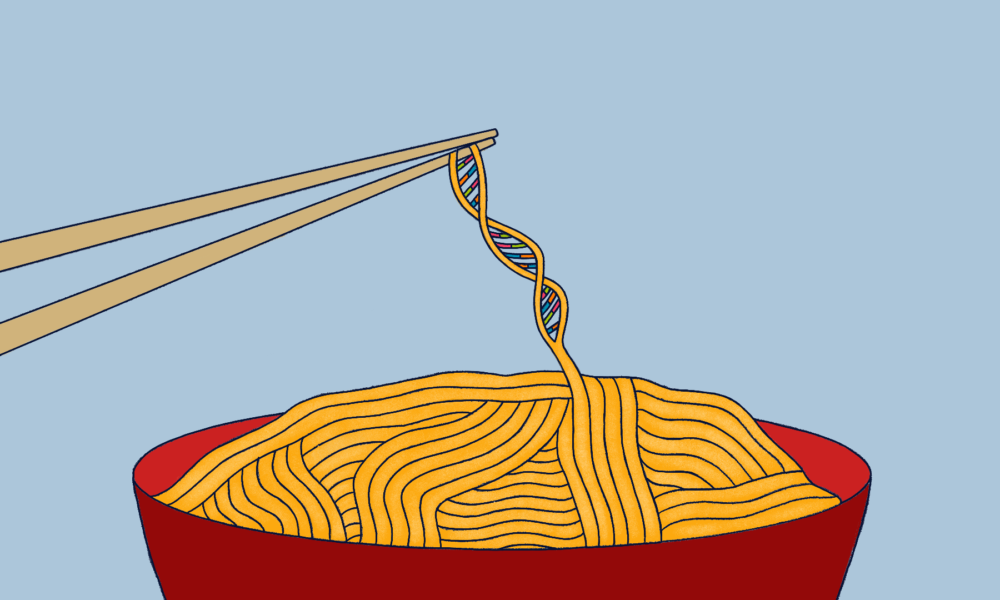Blood tests are the cornerstone of modern medicine, often relied on as objective indicators of health. In patients with anorexia nervosa (AN), however, these numbers may be misleading.
A new study from Montreal’s Douglas Institute, published in the Journal of Psychiatry & Neuroscience, found that women with anorexia nervosa had higher serum levels of vitamin B12 and betaine—results that would otherwise be reassuring if they were not masking malnourishment.
For Howard Steiger, senior author of the study and psychologist at the Douglas Institute, this paradox highlights the complex ways biology and lived experience intersect in patients with AN.
Steiger’s study compared 162 women divided into three groups: 64 with active AN, 49 in remission, and 49 who had never experienced an eating disorder. The group with active AN included both restrictive and binge-purge subtypes. The researchers note no subgroup differences. The sample size, however, may have been too small to detect such differences. Importantly, no participants were taking dietary supplements.
The sample was limited to women, who represent the majority of AN cases. Socially, women face heightened cultural pressures around body size and appearance. Biologically, sex-based differences also play a role in AN susceptibility—a confounding factor for which Steiger’s design accounted.
Steiger explained in an interview with The Tribune that prenatal hormone exposure can shape later susceptibility. He pointed to research linking a ‘feminized’ digit ratio—where the index finger is longer than the ring finger, suggesting greater exposure to estrogen in the womb—with heightened eating disorder risk.
Results showed that those with active AN had higher B12 and betaine levels as compared to healthy controls. Concerningly, B12 levels remained elevated even a year into remission. This persistence raises questions about whether AN leaves lasting biological traces, even after remission.
Under normal conditions, nutrients like B12 and betaine get used up and help regulate DNA methylation, a chemical, epigenetic process that influences which genes are expressed.
“If you think of a [piano] keyboard, it’s a fixed thing. It has 88 keys, nothing’s going to change that, but depending on which keys you play, you can get a lot of different tunes,” Steiger said. “I like to think of the epigenome as the environment playing on a 30,000-key DNA keyboard, constantly changing and reprogramming and resetting what’s being expressed.”
In AN, this regulatory relationship between nutrients and DNA methylation breaks down. Elevated nutrient levels may not indicate better nutrition, but can instead signal problems with how the body processes and uses these vitamins. When cells cannot properly absorb nutrients from the bloodstream, vitamins accumulate in the blood rather than reaching the tissues that need them.
The study explains that this disruption has also been observed in autoimmune diseases such as lupus and rheumatoid arthritis, where inflammation disrupts normal vitamin transport. Given that AN affects cellular metabolism and has links to immune dysfunction, similar mechanisms may be at play, though the underlying biology remains unclear.
The study also found hints of lasting epigenetic effects: Even over 12 months into remission, the B12-methylation relationship remained altered. Still, Steiger stressed that biology is not fatalistic: His previous, larger-scale research shows that DNA methylation disruptions associated with AN reverse with recovery.
“Epigenetic processes can explain how you go from a genotype, a genetic susceptibility, to a phenotype, a full-blown eating disorder, and back,” Steiger said.
For clinicians, these findings are a warning: Normal bloodwork may not reveal the true nutritional state of someone with an eating disorder. Numbers alone cannot capture the lived experience of the illness—an experience that plays, and sometimes creates dissonance with, the very keys of biology.
“People with eating disorders often have a hard time getting access to well-informed care,” Steiger added. “There’s a tendency to blame them [….] This work really helps us to understand that it’s not weakness. It’s not a moral weakness, it’s not a lack of effort, and it’s not bad parenting. It’s biology. But it’s biology that is changeable.”
The paradox of normal-looking bloodwork underscores how complex and misunderstood anorexia nervosa can be; it is not a choice, recovery is possible, and biology is not destiny.






